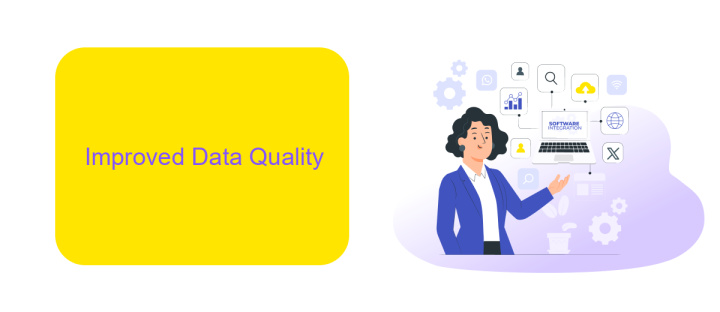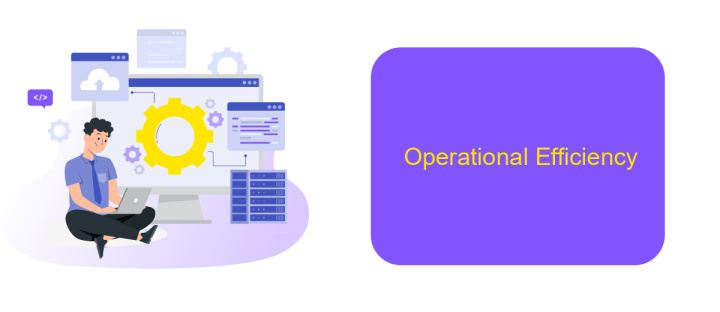Benefits of Data Integration
Data integration is a critical process in today's data-driven world, enabling organizations to combine information from various sources into a unified view. This practice not only enhances decision-making but also improves operational efficiency and data accuracy. By leveraging data integration, businesses can unlock valuable insights, streamline workflows, and drive innovation, ultimately gaining a competitive edge in the market.
Introduction
In today's data-driven world, organizations are constantly seeking ways to optimize their operations and make informed decisions. Data integration plays a crucial role in achieving these goals by combining data from various sources into a unified view. This process not only enhances data accessibility but also improves data quality and consistency.
- Streamlined operations
- Enhanced decision-making
- Improved data quality
- Increased efficiency
- Cost savings
One of the leading tools facilitating seamless data integration is ApiX-Drive. This service allows businesses to connect multiple applications and automate workflows without the need for complex coding. By leveraging ApiX-Drive, organizations can ensure their data is synchronized and readily available, thereby driving better business outcomes and fostering innovation.
Improved Data Quality

Integrating data from multiple sources significantly enhances data quality by ensuring consistency and accuracy. When data is consolidated into a single system, discrepancies and errors that may exist in isolated datasets can be identified and corrected more efficiently. This unified approach eliminates redundancy and ensures that all data points are up-to-date, providing a more reliable foundation for decision-making processes. High-quality data is crucial for generating accurate insights and maintaining the integrity of business operations.
Moreover, automated data integration solutions like ApiX-Drive streamline the process of merging and synchronizing data from various platforms. By automating data transfers and updates, ApiX-Drive minimizes the risk of human error and reduces the time spent on manual data entry. This not only improves the overall quality of the data but also allows businesses to focus on more strategic tasks. Enhanced data quality through integration leads to better analytics, more effective marketing strategies, and improved customer experiences.
Enhanced Decision-Making

Enhanced decision-making is one of the key benefits of data integration. By consolidating data from multiple sources, businesses can access a comprehensive view of their operations, customer behaviors, and market trends. This holistic perspective enables more informed and accurate decisions, fostering strategic growth and competitive advantage.
- Unified data sources provide a single version of the truth, reducing discrepancies and errors.
- Real-time data access allows for timely decisions, crucial in fast-paced markets.
- Advanced analytics and reporting tools can generate actionable insights from integrated data.
- Integration services like ApiX-Drive streamline the process, ensuring seamless and efficient data flow.
By leveraging data integration tools, organizations can break down data silos and enhance their decision-making capabilities. Services like ApiX-Drive facilitate the integration process, enabling businesses to connect various platforms effortlessly. This results in a more agile and responsive decision-making framework, ultimately driving better business outcomes.
Operational Efficiency

Operational efficiency is a critical advantage that data integration brings to organizations. By seamlessly connecting disparate data sources, businesses can streamline their processes and reduce the time spent on manual data handling. This leads to faster decision-making and improved productivity across departments.
One of the key benefits of data integration is the ability to automate workflows. Tools like ApiX-Drive enable companies to set up integrations without the need for extensive coding knowledge. This not only saves time but also minimizes the risk of human errors, ensuring data accuracy and consistency.
- Streamlined data flow between systems
- Reduction in manual data entry
- Improved data accuracy and consistency
- Enhanced decision-making capabilities
By leveraging data integration tools, organizations can achieve higher operational efficiency, allowing employees to focus on more strategic tasks rather than mundane data management. This ultimately contributes to better resource allocation and a more agile business environment.


Competitive Advantage
Data integration offers businesses a significant competitive advantage by enabling seamless access to disparate data sources. By consolidating data from various platforms, companies can gain a comprehensive view of their operations, leading to more informed decision-making. This holistic approach allows businesses to identify trends, optimize processes, and respond swiftly to market changes, ultimately driving growth and innovation.
Furthermore, utilizing integration services like ApiX-Drive can streamline the integration process, reducing the time and resources required to connect different systems. ApiX-Drive provides a user-friendly interface and robust automation capabilities, ensuring that data flows smoothly between applications without the need for extensive technical expertise. This efficiency not only enhances operational agility but also frees up valuable resources, allowing businesses to focus on strategic initiatives and maintain a competitive edge in the marketplace.
FAQ
What is data integration?
Why is data integration important for businesses?
How does data integration improve data quality?
What are the challenges of data integration?
How can businesses automate data integration processes?
Apix-Drive will help optimize business processes, save you from a lot of routine tasks and unnecessary costs for automation, attracting additional specialists. Try setting up a free test connection with ApiX-Drive and see for yourself. Now you have to think about where to invest the freed time and money!

